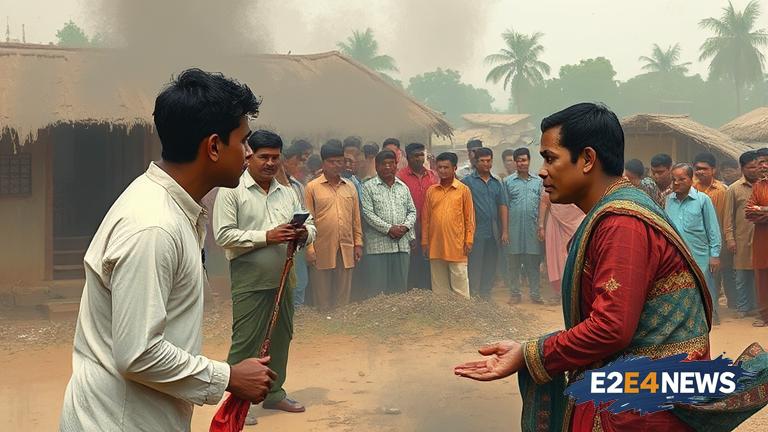The recent ethnic conflict in Manipur, particularly between the Meitei and Kuki communities, has raised concerns over the fragile peace in the region. The conflict has been ongoing for several years, with both sides accusing each other of violence and aggression. The Meitei community, which is the largest ethnic group in Manipur, has been at odds with the Kuki community, which is a smaller but significant ethnic group in the state. The tensions between the two communities have been fueled by a range of factors, including land disputes, economic competition, and cultural differences. The conflict has resulted in the loss of lives, displacement of people, and destruction of property. The Manipur government has been criticized for its handling of the situation, with many accusing it of failing to take adequate measures to prevent the violence. The central government has also been accused of not doing enough to address the root causes of the conflict. The Kuki community has been demanding greater autonomy and recognition, which has been met with resistance from the Meitei community. The Meitei community, on the other hand, has been demanding the protection of their rights and interests. The conflict has also been fueled by the presence of armed groups, which have been accused of perpetrating violence and intimidation. The situation has been further complicated by the involvement of external factors, including the influence of neighboring countries. The international community has been urged to take notice of the situation and to provide support to the affected communities. The conflict has also had a significant impact on the economy of the region, with trade and commerce being severely affected. The people of Manipur are hoping for a peaceful resolution to the conflict, which has been ongoing for far too long. The state government has announced several measures to address the situation, including the establishment of a peace committee and the deployment of additional security forces. However, many are skeptical about the effectiveness of these measures, given the complexity of the issue. The conflict has also raised questions about the role of social media in fueling tensions and spreading misinformation. The need for a peaceful and sustainable solution to the conflict has been emphasized by all stakeholders, including the government, civil society, and the affected communities. The situation in Manipur is a reminder of the importance of addressing ethnic tensions and promoting inclusive and sustainable development. The international community must take notice of the situation and provide support to the affected communities. The people of Manipur deserve peace and stability, and it is the responsibility of all stakeholders to work towards achieving this goal. The conflict has also highlighted the need for greater understanding and empathy between different communities. The importance of preserving the cultural heritage and traditions of all communities has been emphasized. The situation in Manipur is a complex one, and a comprehensive solution is required to address the root causes of the conflict. The government and other stakeholders must work together to promote peace, stability, and development in the region. The people of Manipur are looking forward to a brighter future, where they can live in peace and harmony with each other.
